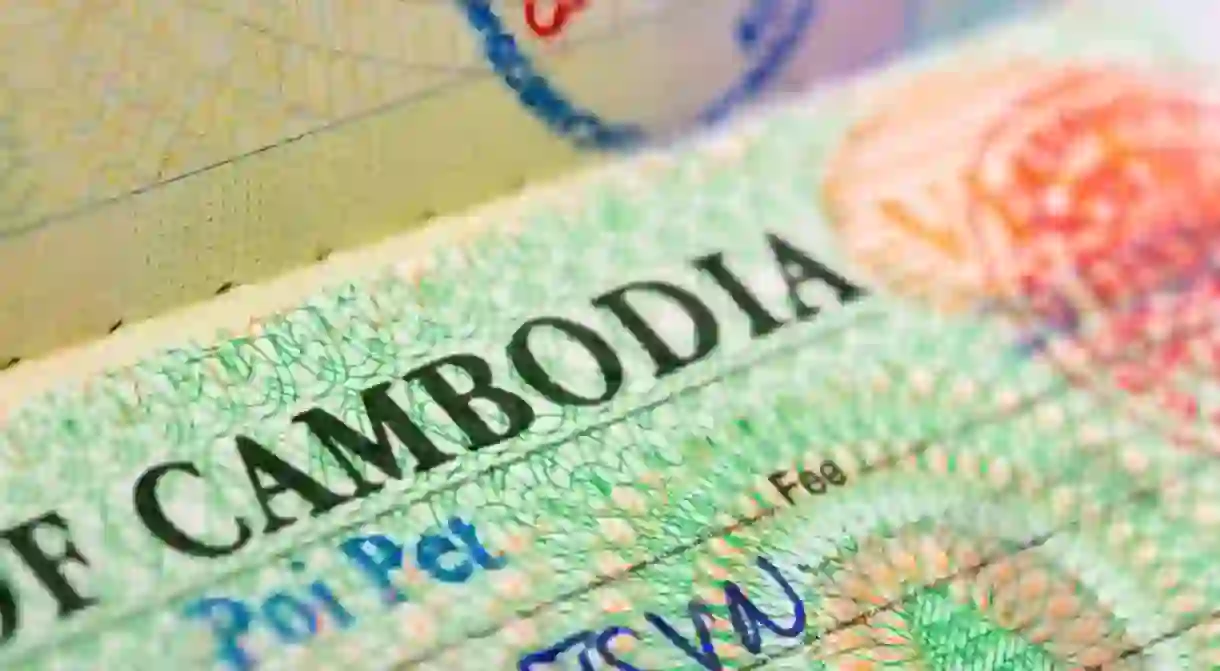How To Renew Your Visa in Cambodia

Times may well be changing but, for now, Cambodia remains one of the easiest countries to access a short- or long-term visa. Here’s everything you need to know about renewing and receiving a visa for the Kingdom of Wonder.
There aren’t many countries in the world where visitors can rock up and pretty much immediately secure themselves a long-term visa without proof of employment or any other papers.
While the Ministry of Information is tightening up the country’s lax approach to allowing foreigners entry, it remains easy for tourists to extend their stay.

Do I need a visa?
Unless you live in ASEAN – Brunei, Indonesia, Laos, Malaysia, Myanmar, the Philippines, Singapore, Thailand or Vietnam – then you will need a visa to enter Cambodia.
The majority of other countries can access a tourist visa on arrival or in advance. However, visitors from Afghanistan, Algeria, Bangladesh, Iran, Iraq, Nigeria, Pakistan, Saudi Arabia, Sri Lanka and Sudan will need to apply in advance as visa on arrival is not available – and expect a potential headache with a sponsor letter or letter of invitation needed.
What type of visa do I need?
There are several different types of visa available, with the tourist visa the most popular for travellers. The T-class visa is valid for up to 30 days and is available in advance online or on arrival for $30.
It is a single-entry visa and can be renewed once without leaving the country for 30 days, for $45. To renew after that, visitors must carry out a border run.

The E-class visa, or ordinary visa, is for those who plan on spending more time in the country. As part of the government’s toughening up plans, in 2017 four categories of E-class visa were introduced.
The EB visa is the most widely-used by expats and can be renewed for one, three, six or 12 months. Applicants should have a work permit in order to secure this visa, although authorities are still granting some for those without permits who can provide a letter from their employer.
The ER visa is for retirees living in Cambodia who can provide documents proving they have funds to support themselves and have retired in their homeland. The ES visa is for students, and the EG visa is for those searching for employment.
It’s worth noting that one- and three-month visas are single entry only, with the six- and 12-month visas being multiple entry. And those caught using a visa incorrectly face a $100 fine and will be kicked out of the country within seven days.
How do I get a visa?
All applicants need a passport that is valid for more than six months and has at least one blank page. Two passport photos are also required, with those without able to pay $2 for customs to scan your passport photo.

The visa can be applied for online ($36) and takes up to three working days to receive. Alternatively, the forms are dished out on planes for a visa on arrival. Once you land at Phnom Penh or Siem Reap airport, you will need to queue at the customs desk to apply.
Try and ensure you have the correct change, and make sure you are not overcharged for your visa. There are signs that clearly state the correct amount. On arrival visas are also available at a series of land border crossing between Cambodia and Thailand and Vietnam.
How do I extend my stay?
Extending is relatively easy. As mentioned, those with a 30-day tourist visa can extend once for 30 days for $45 without leaving the country. This can be done through any of the small travel shops that dot the tourist hubs.
While it can be done yourself by visiting the Department of Immigration, this can be a long and tedious process, so leave it to the experts.
You will need to hand over your passport, a passport photo and the renewal fee up front. It usually takes two to three working days before you can pick up your passport from the travel agent.

If you’ve managed to accidentally overstay for a few days, then fear not because you will be slapped with a $10 a day fine at Immigration when you leave the country, or when you renew your visa.
The law states that it is possible to overstay for up to 30 days. Those staying longer will still be hit with a $10 a day fine but may also find themselves put behind bars or deported and banned from returning.













